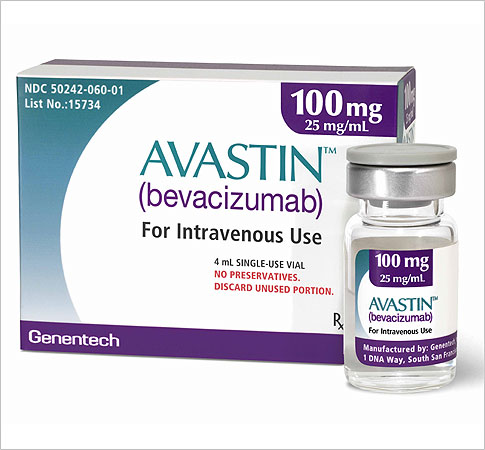FDA Panel To Vote On Breast Cancer Drug
 New York: The Government panel will give its decision over the cancer drug Avastin. The U.S. Food and Drug Administration staff review comes ahead of a Wednesday advisory panel on a bid by Roche and U.S. partner Genentech Inc to extend use of Avastin, already approved to treat lung and colon cancer, to patients with breast cancer.
New York: The Government panel will give its decision over the cancer drug Avastin. The U.S. Food and Drug Administration staff review comes ahead of a Wednesday advisory panel on a bid by Roche and U.S. partner Genentech Inc to extend use of Avastin, already approved to treat lung and colon cancer, to patients with breast cancer.
Experts advising Food and Drug Administration will vote on whether Avastin should be approved as a breast cancer treatment in conjunction with chemotherapy.
It will be decided from the vote whether to add the treatment of breast cancer as one of the drug’s approved uses.
Analysts believe that FDA approval of Avastin for breast cancer could translate into at least $1 billion in annual sales for Genetech.
FDA’s released Avastin study failed to convince analysts that approval was assured as the drug got mixed results in extending the survival of patient.
FDA staff said that in study, among 722 total patients, those in the Avastin group had a 20 percent increase in serious toxicity, including hypertension, blood clots, and heart attacks, among other side effects.
Avastin achieved its main goal of extending survival without the spread of cancer by 5.5 months. In the overall survival, the drug extended survival by less than a month, the plan to prevent the next Vioxx.
Genentech spokesman Ed Lang, said, “There was a slight increase; it just wasn’t statistically significant.”
Patients in the study were given either a commonly-used treatment called paclitaxel, or paclitaxel combined with Avastin, known generically as bevacizumab.
If approved, Avastin wouldn’t face much competition, it would tap into a group of patients, those who do not have the HER2 positive gene, and for those patients, chemo is the only option.
Breast cancer patients who carry the HER2 positive gene can use Genentech’s Herceptin or GlaxoSmithKline’s (Charts) Tykerb.
Avastin sales have been increased by more than a third during the first nine months of 2007 to about $1.7 billion.